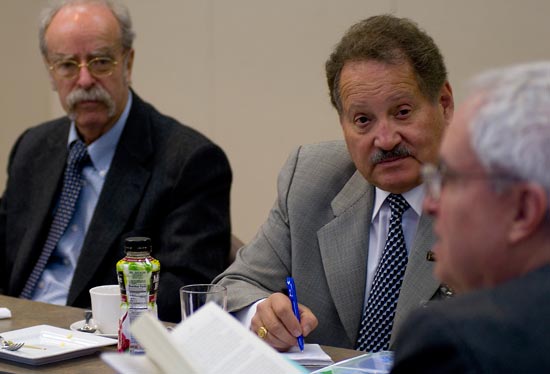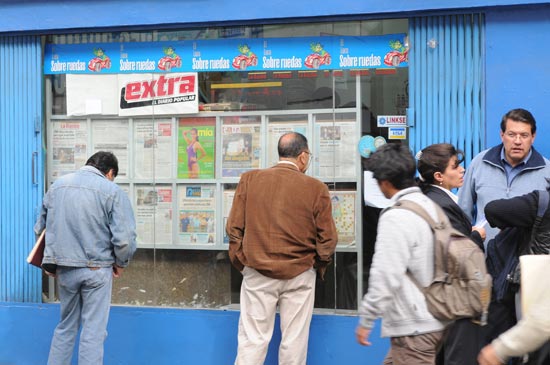For veteran journalist Raúl Novillo Alarcón, navigating the streets of La Paz, Bolivia, is easier than keeping pace with the country's political roadmap. "This is a difficult time for journalism in Bolivia," he said.
Over the last several years, Bolivian society has undergone a major transformation. With the groundbreaking election of an indigenous-group leader to the presidency in 2005, long-excluded and underrepresented citizens have found a spot at the political table, and the status quo of government and social relations has been turned upside down.
Because, according to a 2009 survey, Bolivians rely on the media for information and to help them form opinions in an increasingly complex society, The Carter Center spearheaded a year-long project to work with Bolivian journalists and media representatives on their role in promoting peace and stability in their country.
"We found that some groups were fighting their conflicts in the media," said Marcelo Varela Erasheva, associate director of the Carter Center's Americas Program. "In some cases, the feuding leaders had never even met face to face." Varela Erasheva said that inflammatory media reports served to escalate disagreements.
Novillo Alarcón, president of the Bolivian Association of Radio Broadcasters, along with colleagues of the National Press Association, the National Association of Journalists, and the Association of Journalists of La Paz, and international experts, lectured to journalists at 10 Carter Center-sponsored workshops across the country. The idea is that journalists who have the skills to report accurately and without bias can help prevent conflict from erupting or keep them from intensifying. Novillo Alarcón and the other presenters discussed how media can cover hot-button issues like elections, social movements, and land disputes in an informative and constructive way.
"The journalists now have a better understanding of what the problems are-not only in Bolivia, but also across Latin America," said Novillo Alarcón. "Some of the young journalists called us a better source than their universities." For his presentations, the senior broadcaster drew on years of experience in the United States and Bolivia, including in the Latin America division of Voice of America, as a producer for ABC, NBC, and CBS, and as a radio station owner.
Novillo Alarcón and his colleagues hope the training will instill the next generation of Bolivian reporters with the ability to handle the challenges that come with an increasingly difficult job.
"The Carter Center has helped us tremendously to achieve better journalism in Bolivia," Novillo Alarcón said.
Real Lives, Real Change
Read more stories of women, children, and men whose lives have been changed through the Carter Center's peace and health programs >

Photo credit: Carter Center/L. Satterfield
Raúl Novillo Alarcón (center) and a group of fellow Bolivian journalists visited Atlanta and Washington, D.C., in October to discuss the relationship between the media and government officials in the United States.

Photo credit: Carter Center/D. Hakes
Carter Center staff found that inflammatory media reports escalated conflicts between Bolivian groups.
Please sign up below for important news about the work of The Carter Center and special event invitations.